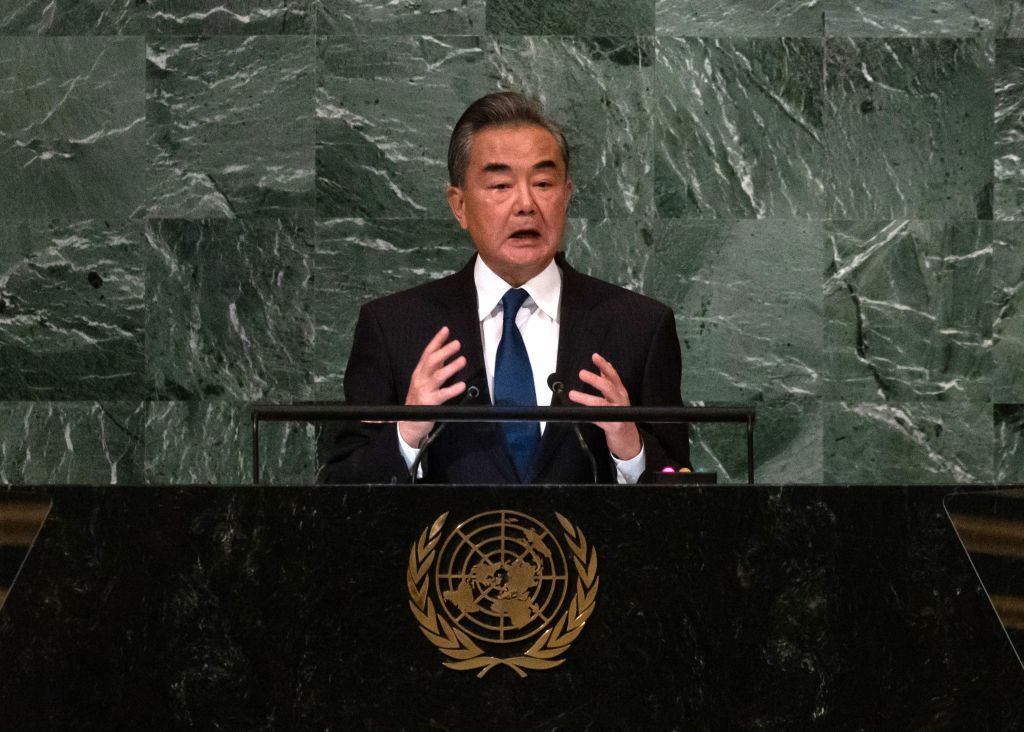
The smoke has cleared from China’s military exercises in the Taiwan Strait last month, and the sequence of events highlights some of the realities of the regional security outlook.
US House Speaker Nancy Pelosi visited Taiwan on 2 August and from 4 to 7 August, the People’s Liberation Army conducted large-scale military exercises around Taiwan, including missile launches. Following the first round of exercises, further drills were conducted from 8 to 15 August. During that time, on 10 August, the Taiwan Affairs Office of the State Council released a new white paper, titled The Taiwan question and China’s reunification in the new era. Chinese diplomats immediately began promoting its message around the world, including in Australia.
It is Beijing’s third white paper on the Taiwan issue, after those in 1993 and 2000, and has been in preparation for years. The timing of its release gives visibility to the mechanics of Beijing’s actions towards Taiwan in which an ideologically driven policy process is leveraged by tactical opportunism. While its release would have been anticipated in the lead-up to the Chinese Communist Party’s national congress in October, the specific timing shows how Beijing sought to link policy and military escalation directed at Taiwan to the actions of the US.
There’s a debate about whether the US should have created that tactical opening, but the developments do highlight Beijing’s underlying escalation pathway towards Taiwan. The August exercises in the Taiwan Strait crossed the so-called median line that had represented a nominal commitment to a cross-strait equilibrium. However, since their formal end in mid-August, the PLA Air Force has continued to conduct flights across the line. It is building on the military activity of the past several years and Pelosi’s visit gave an opportunity to step up the PLA presence across the Taiwan Strait and shift the status quo.
This accords with the CCP’s ideological commitment to the unification of Taiwan as the ultimate demonstration of China’s development under its leadership, what party chairman Xi Jinping calls the ‘great rejuvenation of the Chinese nation’. In the party’s ideological system, which it has described with a distinctive Marxist scientism as the ‘tide of history’, China is always moving forward to this goal. Beijing’s calibrated military escalation serves to validate this ideological belief and the party’s legitimacy.
This highlights the complex risk calculus for conflict in the Taiwan Strait. Given the CCP’s ideological necessities, it was predictable that Beijing would continue its methodical military and diplomatic escalation directed at Taiwan punctuated by opportunistic displays of state and military power. But it’s been simultaneously much more difficult to predict whether Beijing would consider a full-scale invasion and occupation of Taiwan, given the enormous risks and inevitably devastating outcomes.
Escalation and invasion have presented distinct and, in terms of the CCP’s ideological project, even contradictory geopolitical risk regimes. Invasion could be argued to represent a failure of the CCP’s Marxist teleology in the sense that such drastic action shouldn’t be necessary if unification is indeed unfolding in accordance with history’s laws.
The 10 August white paper can be read as an attempt to reconcile these contradictions by building an argument for the unfettered use of state power to achieve unification. It includes a statement of Beijing’s position that Taiwan is Chinese territory, including a reinterpretation of the 1971 UN resolution that recognised Beijing and excluded the ‘representatives of Chiang Kai-shek’. It describes the absolute necessity of unification to realise China’s ‘great rejuvenation’. The white paper also states Beijing’s commitment to ‘peaceful reunification’, but, against the longstanding opposition of the Taiwanese people and the lack of any viable roadmap from Beijing, this claim becomes a pretext to focus on the forces that stand, in the party’s view, against history—separatists and the ‘external forces’—which serves to justify achieving unification through ‘all necessary measures’.
The white paper’s hard message has been promoted by China’s representatives around the world. In Australia, the Chinese ambassador, Xiao Qian, described the chilling prospects of ‘re-educating’ the Taiwanese people and punishing so-called separatists. It was a stark statement of what unification actually means: it would criminalise the people of Taiwan for being Taiwanese, and destroy Taiwanese society as it is today, with shocking connotations for human rights and uncontainable effects on regional security.
At the United Nations General Assembly on Saturday, Foreign Minister Wang Yi used a new metaphor: ‘Any move to obstruct China’s cause of reunification is bound to be crushed by the wheels of history’. There’s no talk of passively waiting for history’s ‘tide’ to naturally submerge Taiwan.
US President Joe Biden appears to understand these implications in his repeated statements about US military defence of Taiwan premised on Washington’s commitments to Beijing from the 1970s and 1980s. At the same time, US support for Taiwan validates the CCP’s ideological position on ‘external forces’, creating a dangerous dynamic in which Washington’s efforts to maintain the status quo are used by Beijing as justification for actions against Taiwan.
It will require policy discipline from the US and its allies to manage this intrinsically escalatory dynamic. The Australian government has so far called for maintaining the status quo but not articulated an argument about what this means (maintaining Taiwan’s de facto sovereignty) and why this is in Australia’s interests. Policy analysis in Australia’s public life tends to see Taiwan as nothing more than a proxy of American power, not as a unique society of 24 million people to which Australia’s interests are directly tied.
As the white paper signals Beijing’s priorities following next month’s national party congress, it shows that Australia has a great deal of policy work to do to develop a properly informed position on Taiwan that is both robust and finessed and supported with domestic political legitimacy.

